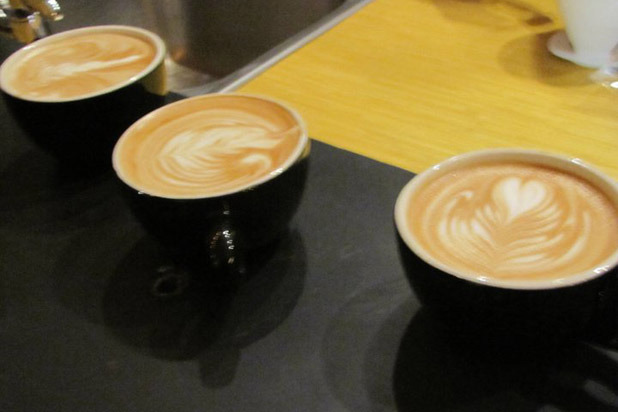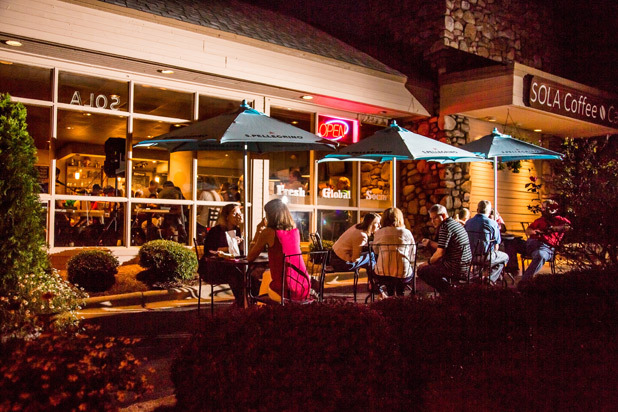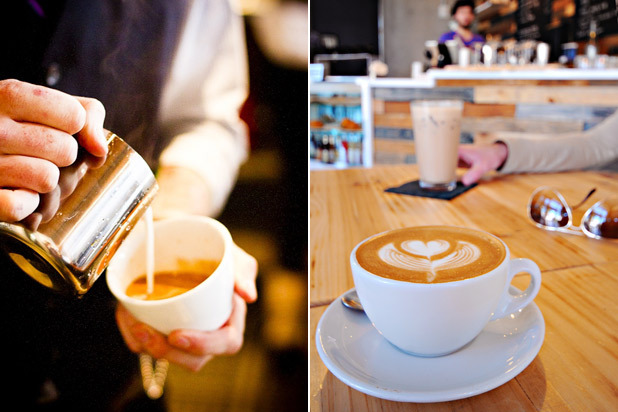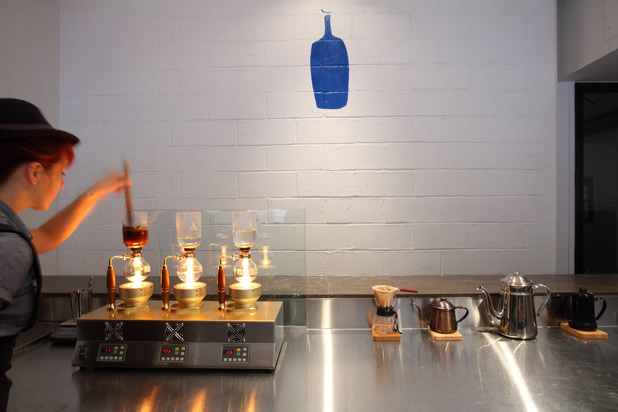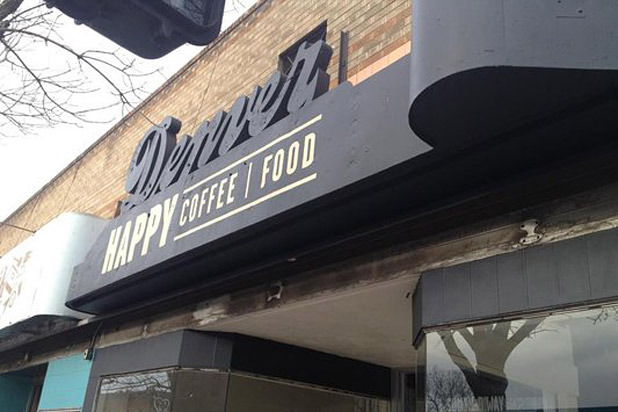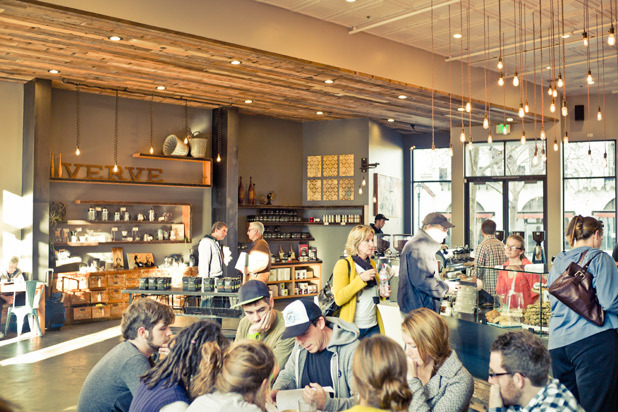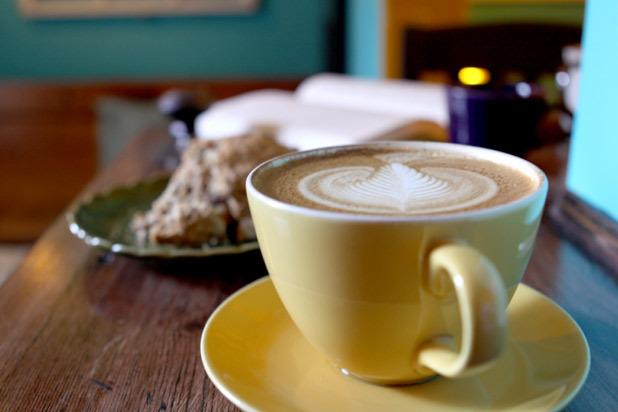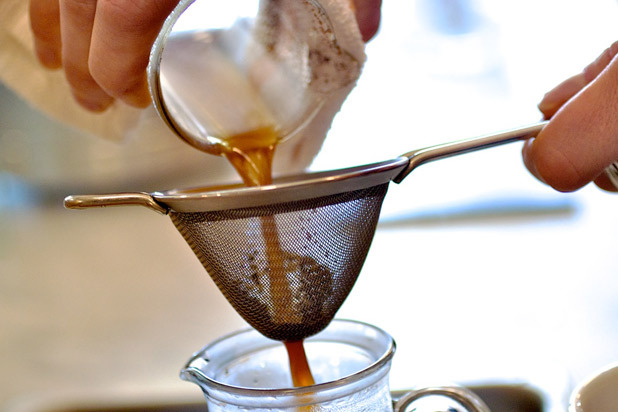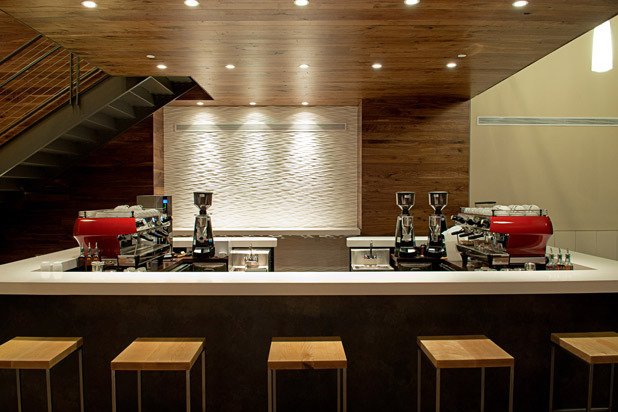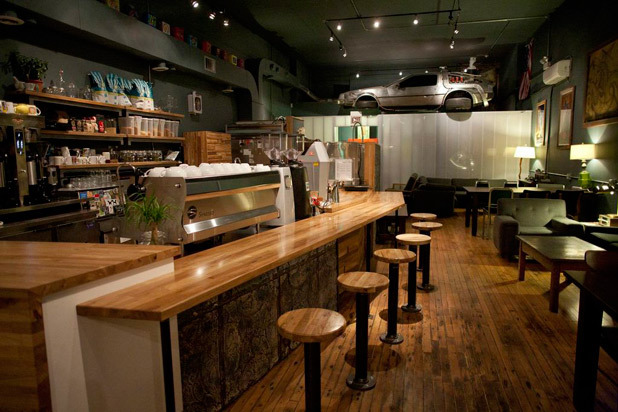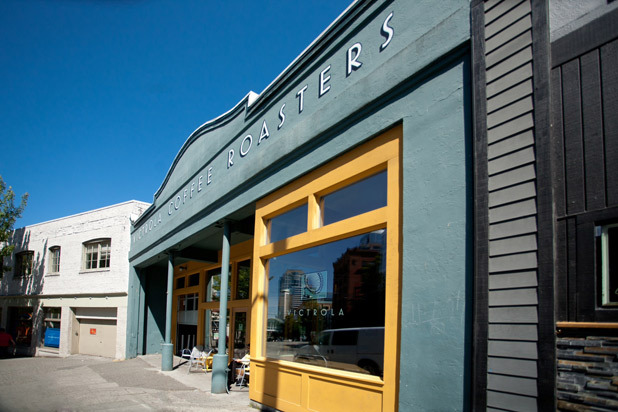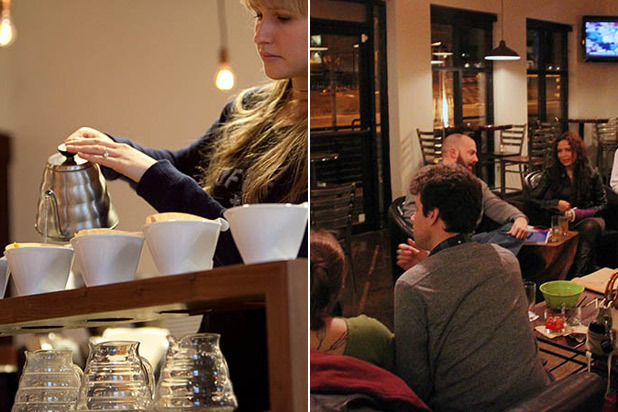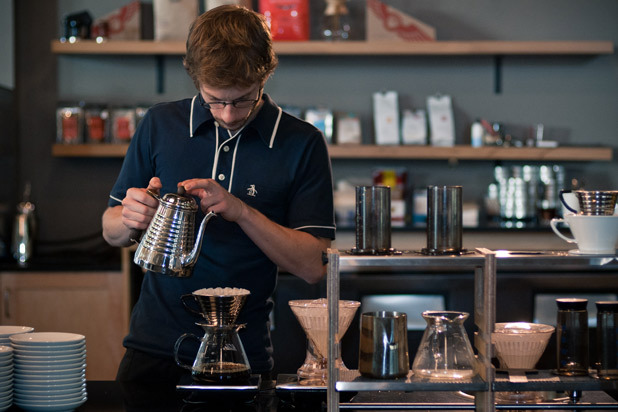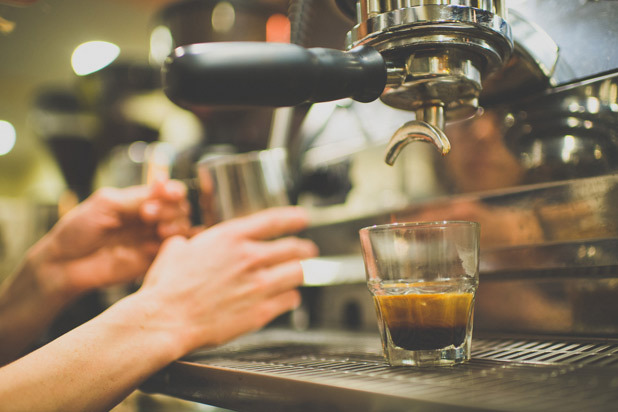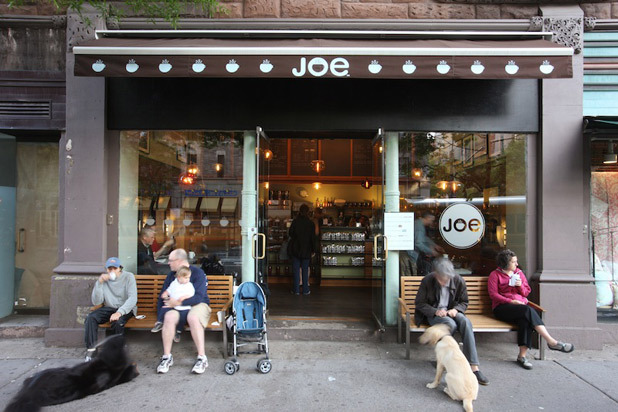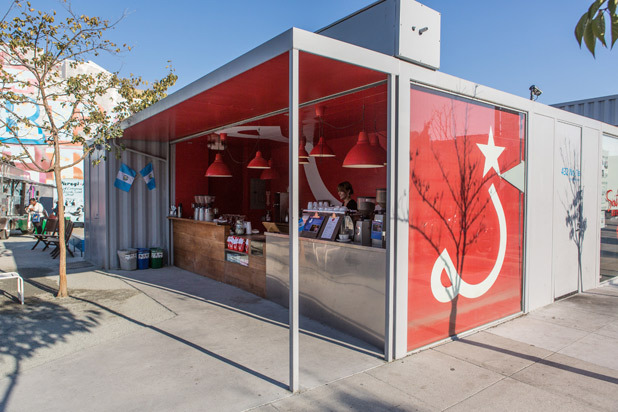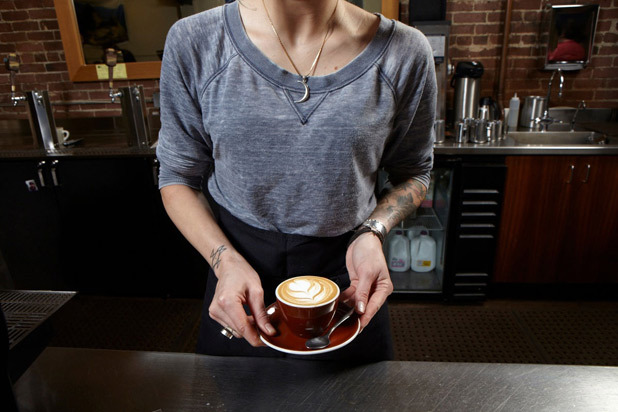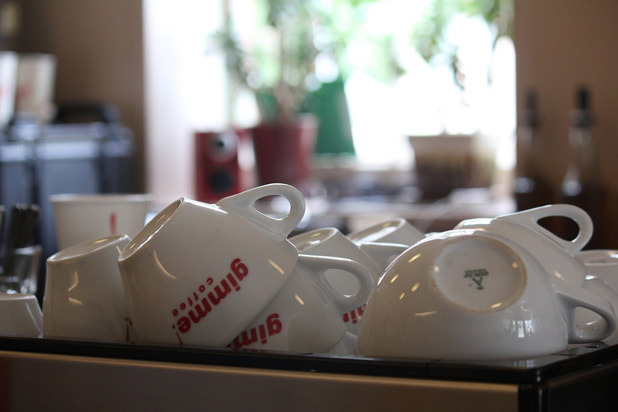America's Best Coffee Shops Slideshow
We started our list with Philly, and end up right back where we started. In a sea of coffee, Town Hall stands out for its rotating list of outstanding roasters (Stumptown, Counter Culture Coffee, Intelligentsia, One Village Coffee, Gimme! Coffee, and Verve Coffee just to start) served pour-over style, plus the atmosphere of a true, down-to-earth coffee shop. Large leather armchairs, original artwork hanging from the walls, tables meant for conversations, and baristas with a personal touch are what make this coffee shop great. If we could transport the vibe from Cheers — where everyone knows your name — it could only be found at Town Hall Coffee Co. While owner Tim Noble recently shot down the idea of roasting their own coffee for now, we see a bright future ahead for this Philly shop.
32. Sola Coffee, Raleigh, N.C.
This café opened in 2012, and gave Raleigh, N.C., caffeine addicts a communal place to discover coffee. Counter Culture Coffee supplies the store with a rotating list of coffees, and Homeland Creamery supplies the milk. Of the full food menu, we hear the mini cinnamon donuts are basically foods of the gods. But what puts Sola on the list is the atmosphere: a homey, intimate setting that combines the best of a coffeehouse environment with a live music venue.
31. Octane Coffee, Atlanta
Octane has become another major player in the Atlanta coffee scene (and a highly recognized one at that). The three locations in Atlanta (there's one more in Birmingham, Ala.) offer Chemex and French press extractions with their own roasts (having recently switched from Counter Coffee Culture brews), and treats from local shops, like favorite Holeman & Finch. And now they're offering their own coffee cocktails that will make your heart sing as well as a series of craft beer dinners. Octane's signature drink? The Americola: espresso + sugarcane Coca-Cola = an original Atlanta concoction. (The other signature of Octane? The Hey, Octane Boy Tumblr.)
30. Zoka Coffee, Seattle
Another roaster and shop in Seattle, Zoka has been a staple of the coffee scene since it opened in 1996. With carefully sourced, small-batch roasts (two have been top finishers in the Cup of Excellence awards) and an impressive lineup of teas, Zoka draws in residents for its atmosphere and customer service. Its four locations in Washington (Zoka has additional locations in Tokyo as well) have something for everyone — and it's known for being laptop-friendly.
29. Condesa Coffee, Atlanta
There's a lot to love at Condesa Coffee: a Counter Culture Coffee lineup of coffee brews, Intelligentsia teas, a killer cocktail and food menu, and a homey vibe that welcomes its neighbors. Condesa ranked highly for the quality of its coffee (served both pour-over or Chemex), and got nearly perfect scores for its customer service. Perhaps it's the attention to detail that goes into every coffee (and coffee cocktails, yum) that pushes Condesa to the forefront of the growing Atlanta coffee scene.
28. Abraço Espresso, New York City
You won't find a tinier shop than Abraço Espresso in Manhattan's East Village (with standing room for maybe a dozen people), but we don't hold that against them. Counter Culture Coffee brews, plus a stellar food menu with Spanish and Portuguese influences (like the raved-about olive oil cake or a vegetable and Cheddar frittata) has put this micro shop on the map in a slew of New York City coffee shops.
27. Kaffe 1668, New York City
We can't ignore the Swedes' influence on the coffee scene. After all, Sweden is a country with some of the highest coffee consumption in the world. And so the two locations of Kaffe 1668 snag a spot on the list with the rotating list of roasters (Toby's Estate, Intelligentsia, and Counter Culture Coffee have all been served), minimal woodwork seating, and a soothing environment in which to sip your coffees in. Kaffe's list of coffees takes you far and wide, across the globe, for a tasting experience that's unlike any other.
26. Blue Bottle Coffee, Various Locations
No one can deny James Freeman's contributions to the third wave of coffee. The founder and roaster put Blue Bottle on the map by individually brewing each cup of coffee for customers (a blessing and a curse, undoubtedly). The organic, shade-grown, pesticide-free beans used are roasted just days earlier in vintage roasting machines, defining what's now called "slow coffee." And Freeman was taking cues from Japanese coffee culture long before other coffee shops caught on, with Blue Bottle's Japanese siphon bars. While many cringed when the company raised $20 million in venture capital last year, no one can deny that its newfound bankroll makes it the largest "slow coffee" chain — and the largest on our list with 11 locations nationwide, plus nationwide distribution. And with that, it's often the butt of some hateful comments from those who eschew the third wave of coffee and its hobbyists. Haters will go ahead and hate, but Blue Bottle is still loved by many, including our panelists, who ranked it highly for its customer service and the atmosphere in its shops.
25. Happy Coffee Co., Denver
From a coffee kiosk in a bike shop to a brick-and-mortar shop, Happy Coffee Co. gives Denverites one more reason to be happy (as if they needed it, what with those 300 days of sunshine per year). Another newcomer to the coffee scene, Happy Coffee has become the it-place for Denver espresso lovers. Serving Fourbarrel, Heart, and Sightglass beans and others, Happy Coffee takes its drips seriously. Take the Toddy system for iced coffee, an hour-glass-shaped brewer that takes 18 hours to drip all the way through — it's unreal. Or the Aeropress or Vario V60 drip machine — yeah, they mean business. Happy Coffee Co. sits in a minimalist, spacious space on Broadway, perfect for conversations with your friends and baristas.
24. Panther Coffee, Miami
Traveling from one coast to the other, Joel Pollock and Leticia Ramos Pollock left Portland, Ore.'s bustling coffee scene to go start another — this time in Miami. Don't think humid beach weather and coffee go together? Think again. The couple has taken on finding the world's best, sustainable beans (and won a Good Food Award in 2013) in Guatemala, Ethiopia, and Nicaragua with small farmers, and then roasting them on site in their ultra-hipster spot in the Wynwood art district. (Just check out that wall!) Panther stands out in a coffee scene filled with cortados and Latin American coffee stands (both equally good in their own right). "We're not here to take over the whole culture of coffee in Miami, we're just one participant," said Pollock in an interview with Hungry in Miami. "We do what we do the way that we've learned to do it over the years." That unique spot carved out by Panther is influenced heavily by the Pollocks' relationships with the farmers, and the influences of the coffee-growing countries in Miami.
22. Verve Coffee Roasters, Santa Cruz, Calif.
Verve is loved by Santa Cruz residents and visiting coffee geeks alike: it's one of the top coffee shops-turned-roasters in California. While part of Verve's success is its supply of roasts to local shops and restaurants (two of which were recognized by the 2013 Good Food Awards), it still maintains a homegrown, laid-back appeal for caffeinated Californians in its three locations. Said co-founder Ryan O'Donovan to Good Times Weekly, it's part of the master plan to "provide the best service and be unwavering about that, and have it be a nice atmosphere — the highest quality yet still feel totally accessible." You'll get detailed tasting notes on the variety of coffees Verve sources and roasts, from bean to cup. These guys know what they're doing.
21. Ipsento, Chicago
Another Wicker Park coffee shop, Ipsento may be one of Chicago's best known small-batch roasters. Ipsento is one of the few Chicago coffee shops to roast its beans on site, which means you're getting some out-of-this-world coffee. Not to mention its specialty drinks and food menu: for example, the Wela Latte, an Abuelita Mexican coffee-twin with bittersweet chocolate and cinnamon (a collaboration with local band ALERT312), and the Ernest Hemingway lox croissant sandwich. This literary hiding spot is where you need to go for a relaxing Saturday with a good book and latte. Go for the coffee education classes, and you'll be sold on the newest wave of specialty coffee. Said owner Tim Taylor to CoffeeTalk magazine, the key is to show customers the way of better coffee slowly but surely. "We want to bring the specialty coffee industry to the next level by engaging and inviting consumers to experience the true taste of coffee," he said. "However, it is about gradually educating our customers, not just telling them what they need to like, and this is what we have been trying to do here."
20. Boxcar Coffee Roasters, Boulder, Colo.
The hippy sister to Denver, Boulder, Colo., is bursting at the seams with good coffee shops for all of its college student population (and locavores in need of caffeine). But none have gotten quite as much attention as Boxcar Coffee Roasters, a relative newcomer to the Colorado scene. What makes it so unique? It's old-school. No frills with its roasting, or its coffee. Its roaster is a German Rapid coffee roaster built in 1929, and its coffee is, well, cowboy. One of the most traditional ways to brew coffee (seriously, think back in the day when cowboys made their homes on the range), cowboy coffee means heating the grounds with water. However, Boxcar insists that its unique heating system guarantees the perfect cup of coffee, thanks to its ability to reach the perfect temperature — a challenge at mile-high altitude. Still, that kind of nuanced roasting and brewing leave the tongue with a medley of flavors you'd not expect from a coffee: blueberry, citrus, chocolate, and brown sugar from its variety of beans. It may not be the ideal place to camp out with a laptop or bring a friend (although the soon-to-open Denver location looks to be quite a bit more spacious), it's a welcome respite from the whirl and twirl that is Pearl Street. (And hello, meat and cheese store next door at Cured!) Boxcar Coffee Roasters is only further solidifying Boulder's locavore movement — and the rivalry of the culinary scenes between Boulder and Denver.
19. Caffé Medici, Austin, Texas
In a town that's buzzing with food and drink, Caffé Medici is leading the way for the specialty coffee section. Caffé Medici serves Cuvee espresso and prides itself on pouring the perfect espresso shot, from the quality of the beans to the grinder machines the café uses. On top of a single-origin coffee menu and its own house coffee (Spicewood 71 classic blend from Cuvee), the three locations do their part to keep Austin weird — but the good kind of weird. That doesn't mean you'll find a snooty barista in sight at Caffé Medici, though — it got top scores for customer service from our panelists.
18. The Wormhole, Chicago
As if this place wasn't going to make the list for the DeLorean car sitting in the back. But the geek-chic vibe of the Wormhole (hip-hop from the stereo, old movie posters, Calvin and Hobbes art) is just a part of what makes Wormhole so great. The Wormhole rated exceptionally high from our panelists for its exceptional coffee quality. Using local roaster HalfWit Coffee Roasters as their primary bean with guest starring roasters (like everyone's favorite, Handsome Coffee Roasters), The Wormhole delivers. As manager Stevie Baka recently put it on Chicago Public Radio, a good cup of coffee is well worth the wait for a tulip-decorated, quality espresso drink. In short: come for the DeLorean, stay for the coffee. Bonus: Check out the really outrageous coffee drinks that rival the innovation of a craft cocktail bar; the signature drinks of the past include the Harrison Gourd (a Con Panna interpretation of espresso, with house-made sweet potato whipped cream, and lemon zest), the Tim Curry (Indian spices, espresso, and milk on ice), and the Mayan Melk (white hot chocolate, Earl Grey lavender syrup, and cracked pepper marshmallow).
17. Victrola Coffee, Seattle
The coffee shop on 15th Avenue has been called "the living room of Capitol Hill" — which makes us wish our own living rooms were filled with Victrola coffees, coffeehouse conversations, and a homegrown Arabica coffee tree. (Seriously, its own coffee bean tree!) Victrola, a staple on the Seattle coffee scene since 2000, ranked highly not only for its quality coffee but also for the atmosphere and customer service at each of its three cafés. Stop by the roastery and café for cuppings and a light, sunny coffeehouse vibe; head to Victrola Coffee and Art on 15th for a quirky atmosphere filled with art openings and neighborhood events; and stop by the Beacon Hill location for a neighborly feel. The company is named for the popular phonograph of the 20th century, and owner Dan Ollis has compared the era of the 1920s with the era of coffeehouses today. Said Ollis in an interview with CoffeeTalk magazine, "We believe that Jazz was about innovation and the creation of something new. We find the parallel in our connection to people at our coffee shops — a comfortable social place, interestingly eclectic music, unique and great coffee, great people, great conversations, and finding how they all connect. Our innovation comes from roasting and blending these unique coffees with the same passion for excellence as those Jazz musicians from the past."
16. PT’s at College Hill, Topeka, Kan.
Kansas' most well-known roaster-turned-hipster-coffee-shop is a standard for coffee in the area, thanks to the dedication of the owners, Fred Polzin and Jeff Taylor. After opening PT's Caffe Espresso in 1993, the two quickly learned what it meant to serve great coffee, not mediocre coffee. It's why the duo soon began roasting their own coffee. "We could have sold our small business many times and retired or launched another career that would have probably made us more money," Taylor has written about PT's. "But that's not what we're about. We are here to make great coffee and help our friends do the same." And their dedication has paid off with some much-praised roasts (including an award for 2009 Roaster of the Year from Roast Magazine), as well as PT's at College Hill. The coffee bar serves Flying Monkey espresso as the standard for its stand-alone espressos, lattes, and other drinks, as well as its drip coffees in Chemex, French press, Trifecta, and pour-over. All that, plus a food menu that will make you drool (hello, Flying Monkey chef salad), plus a rotating craft beer tap and cocktail menu. PT's at College Hill puts Topeka, Kan., on the coffee map.
15. Artifact Coffee, Baltimore
Artifact is a relative baby compared to some of the shops on the list, as it officially opened in July 2012. Yet the coffee shop with delicious food offerings (from the owners of Baltimore favorite Woodbury Kitchen) has taken the city by storm. Our panelists raved about the breakfast and "Day Kitchen" menus (and look forward to trying the brand-new BYOB dinner service) at Artifact, but it's the "barn-chic," farm-to-table vibe that helped Artifact claim its spot on our list. And, of course, its dedication to coffee — with roasts from the coffee roaster for whom coffee geeks everywhere shout their love, Counter Culture Coffee, it's hard to find a better cup of coffee in Baltimore. That includes the espresso bar with some surprising additions to the list — a honey macchiato and a goat's milk caramel latte, for instance —, pour-over coffee, and Japanese cold brew iced coffee (where the coffee is brewed directly over ice). All that, plus they offer complimentary coffee cuppings on Fridays with Counter Culture brews.
14. Peregrine Espresso, Washington, D.C.
How could we not include the holder of the title of best coffeehouse in the Eastern U.S. on our list? Peregrine beat out coffee shops from the East (and Canada) in a recent competition, where a team of three baristas had to take over a coffee shop for 30 minutes during a trade show while judges lurked behind the counter. The reason the Peregrine team believed they won the competition was the same reason our panelists ranked Peregrine so highly: its atmosphere and customer service. Said Dawn Shank, one of the winning baristas, to WTOP, "What makes Peregrine special? I would definitely say it's the energy between baristas and customers. I know that for a lot of baristas talking about specialty coffee to customers is something that we really want to focus on, and share without overly geeking out on customers and make it a welcoming environment where customers want to learn more about coffee and they don't feel intimidated or just turned off by something new or different." We couldn't agree more. Stop by for a Counter Coffee Culture at one of Peregrine's three D.C. locations, and relax — they've got you covered.
13. Everyman Espresso, New York City
"If you're tired of nerdy coffee shops that deliver great drinks but make you feel like a moron, then get yourself to the super-friendly Everyman Espresso," wrote the Village Voice in its review — and we couldn't have said it better. We can appreciate a coffee shop that doesn't just cater to the new wave of coffee nerds, but hopes to share its love of coffee for, well, the everyman. Sam Lewontin, the lead barista trainer for Everyman Espresso said it succinctly in a blog post, when defending brew methods. "Customers, generally, don't come into our stores looking for a lesson [in brewing methods]... What customers want, for the most part, is to be served tasty coffee in a way that makes them feel good about themselves." That could be why there's no real menu in the shops, just a printed blurb about the coffee and locally sourced milk. Now with a new location in Soho, the East Village coffee connoisseur serves its Counter Culture coffee with a little bit of heart on the side.
12. Milstead & Co., Seattle
Owner Andrew Milstead has been praised for taking the most difficult approach to the coffee shop model — the multiroaster model — and excelling at it. That means Milstead balances a slew of different roasters, from roasters as big as Stumptown to as small as Heart Roasters in Portland, Ore., to put forth the best coffee possible — and that's not always as easy as it looks. Writes Jordan Michelman in Seattle Met, "Coffee professionals regard the multiroaster model as the most difficult to pull off. It's akin to a chef who works with different purveyors from week to week, a bartender who never sticks to the same base bourbon, or a band that plays a different set every night. The target is always moving, the parameters steadily shifting." But it's Milstead's dedication to the coffees he serves that makes it rank so highly on our list for its quality. With more than 30 different coffees on the menu to sample at a time, you'll never get a better education about coffee than at Milstead & Co. Stop by for a single-origin espresso or an Aeropress or Clever drip coffee, and consider yourself schooled in the art of coffee. Said Milstead in an interview with Seattle Coffee Gear, when explaining why they don't serve Venti-sized coffees or decaf coffee, "We're doing things a little differently... we're totally quality coffee-focused. The coffees that we have are of the utmost quality and intended to be enjoyed on their own... and we seem to have a basic clientele that seems to enjoy coffee on its own."
11. Commonplace Coffee Co. House and Roasters, Pittsburgh
Commonplace Coffee Roasters is about as homegrown as you can get — the couple behind Pittsburgh's burgeoning coffee scene, Julie and TJ Fairchild, began with the original coffeehouse and roastery in 2003 in Indiana, Penn. Since then, the coffee company has grown to include four shops and two roasteries in Indiana, Penn., and Pittsburgh. With such rapid growth, you'd think it'd be easy to let the success (and maybe caffeine) get to their heads. Not so: "At every step of growth for The Commonplace it has always centered around people," wrote TJ Fairchild in a blog post. "The growth has always been organic and natural; never premeditated and forced." The Fairchilds and Commonplace are actively trying to change Pittsburgh's perception of coffee from, well, something commonplace to something extraordinary.
10. Intelligentsia, Various Locations
Intelligentsia may be one of the fastest growing coffee chains in the nation; the chain is now expanding into San Francisco and New York City, on top of its locations in Los Angeles and Chicago, its home base. And we can see why: Intelligentsia ranked consistently high among our panelists for the quality of coffee, atmosphere, and customer service. Plus, Intelligentsia is dedicated to teaching the public exactly how they roast their direct-trade beans and serve their espresso drinks. (Word has it that the Intelligentsia barista training program is one of the hardest to graduate from.)
9. Joe the Art of Coffee, New York and Philadelphia
Everyone knows Joe for their exceptional lattes, cappuccinos, and espresso — they serve undoubtedly some of the best you'll find in New York City. Our panelists raved about Joe's quality coffee, atmosphere, and unparalleled customer service. Now that the company is about to turn 10, the owners have reflected on what's made them a success. "When we opened, we didn't know anything. My guess is that if I went back and tasted coffee from back then, I'd probably be pretty horrified," said co-owner Jonathan Rubinstein to the New York Daily News. Now, Joe is constantly recognized for its roasts (having just won a 2013 Good Food Award for its Ethiopian Camp brew) and Intelligentsia offerings, as well as its accessibility for the average Joe (get it?) consumer. "If you're a fan of Dunkin' Donuts coffee and don't think you fit in with the high-end consumer, we're going to do everything we can to bridge that gap and make you realize that coffee fanatics are coffee fanatics no matter what you drink or how you drink," Rubinstein recently said to Eater. Now that the Rubinsteins are taking Joe across state lines to Philly, the Joe empire is getting just a bit bigger each year.
8. Ritual Coffee Roasters, San Francisco
There is no shortage of good coffee in San Francisco — but based on our panelists' votes, Ritual Coffee Roasters blew the competition out of the water. What did it? The nearly perfect scores for its coffee and single-origin espresso, sourced from Central America, South America, and Africa and brewed in Japanese V60 cone brewers. At the shop on Valencia Street in San Francisco, and its accompanying locations (a coffee bar in the Bayview neighborhood, a shipping container at Proxy in Hayes Valley, and in the Oxbow Market in Napa), it's just coffee, pure and simple. It's no wonder the Valencia flagship attracts a wide range of residents, from yuppies to coffee geeks, which may explain the high score for atmosphere. In a city that's buzzing with caffeine, Ritual will continue to hold its spot as the best.
7. Stumptown, Various Locations
Throw Stumptown into the great coffee debate, and you'll get a variety of opinions. Some love it, some hate it. Some say it doesn't deserve to be called a great coffee shop, that it's gone corporate. Yet our panelists ranked Stumptown higher than the majority of coffee shops and above the six nominated coffee chains for its quality of coffee, atmosphere, and customer service. No doubt that Stumptown was the game-changer in the field of coffee; what Starbucks is to Seattle, Stumptown is to Portland. Portland Food and Drink put it best: "Love 'em or loathe them, Stumptown has given Portland a reputation as a serious coffee city, and has turned the industry upside down by cultivating consumers to demand higher quality, and to push cafés into being willing to provide it. Stumptown realized early on that great beans were nothing if the beverages made from them were poorly executed. They have insisted on intense — some might say rigid — training, equipment programs and wholesale buying requirements." Slowly but surely, Stumptown is bringing its quality roasts from coast to coast; after a successful opening of a roaster in Red Hook, N.Y., and two Manhattan locations (one of which soon to open in Chelsea), the summer of 2012 brought new reports of a Los Angeles Stumptown.
6. Lamill Coffee Boutique, Los Angeles
Compared to the other coffee shops on the list, Lamill isn't going to have the comfy, cozy vibe you'd expect to find in a coffee shop. But there's a reason why it's called a "boutique" and not house or shop — Lamill translates the coffeehouse cup of joe into a chic, modern take. Consider Lamill the white-tablecloth restaurant of coffee shops, says owner Craig Min: "Most beverage places today have instant, industrial ways of making their drinks and use mass-produced syrups and powders," he says. "... We're sourcing the highest-quality, fresh ingredients to make the syrups, extracts, and consommés that go into our beverages." How is Lamill changing the game? Allowing customers to pick their "extraction" (Clover, Chemex, Eva Solo, French press, hand-drip iced coffee, Japanese hand-drip, or siphon brew) and their coffee bean, or from a long list of espresso drinks. Lamill brings a new level of sophistication and polish to your cup of coffee (and tea, too).
5. Café Grumpy, New York City
Café Grumpy may be now best known as Ray and Hannah's coffee shop on Girls to those outside of New York City, but New Yorkers know it as the coffee shop to go to. What sets Café Grumpy apart in a sea of coffee shops in the Big Apple is its own roasted coffee. Co-founder Caroline Bell told Food GPS in an interview that they started roasting their beans in 2009 in order to take coffee into their own hands and now, the Greenpoint, Brooklyn, company produces seven different roasts from Brazil, Nicaragua, Colombia, and others. It's what turns a long list of coffee drinks into something beyond an ordinary cup of joe. But Café Grumpy is most loved by coffee lovers for its dedication to maintaining a true coffeehouse vibe at its four New York City locations. Gone are the laptop drones hooked up to an endless stream of Wi-Fi — it's one of the few shops without Internet. Instead, what you get is a relaxed atmosphere with real conversations hanging in the air. Said Bell to The New York Times back in 2010, "I appreciate the idea of when you go someplace and it feels like a home away from home, but I don't think it should be a home office away from home." (Now, if only coffee shops could ban smartphones.)
4. Courier Coffee Roasters, Portland, Ore.
Courier Coffee Roasters may have paved the way for Barista, Stumptown, and other Portland-area coffee shops as one of the most independent, "low-fi" coffee shops around. Known for its hand-roasted, small-batch coffees, Courier Coffee originally started as a bike-delivery roasting company. You can still get your coffee delivered by bike, but the brick-and-mortar shop is at heart a local coffee shop — with a vinyl collection, hip-hop turntable, freshly baked muesli and baked goods, pour-over coffee dripped into Mason jars, and not much else. The shop takes into consideration the bean from start to finish, only roasting, grinding, and brewing the amount the baristas think they'll serve per day — quite literally the freshest cup of coffee you'll get in PDX. The shop even uses KF-4 23K Swissgold paper filters for a taste that's as clean as a French press. It's the kind of coffee shop that revels in its simplicity — and keeps customers coming back for more.
3. Barista, Portland, Ore.
After seeing Portlandia's "barista manifesto" sketch, it's easy to assume that coffee shops in Portland, Ore., are well, out there. But a look just one of the coffee shops in Portland shows that there's substance behind the title of America's coffee capital. What Barista does particularly well is showcase the best roasters of the Northwest in a "multi-roaster" model with a rotating list of roasts that range from hyper-local roasters (like Seattle's Kuma) to Stumptown. It's just part of Billy Wilson's, barista champion and owner of Barista's three locations, perspective on coffee culture as a whole. It's much bigger than just one shop or one roaster — "I see this new coffee movement as something that goes straight back to farms and villages in the Third World," he said to the Willamette Week. "It can literally change the lives of whole families. So I want to do it well."
2. Gimme! Coffee, New York
The upstate New York coffee roaster turned New York-centric chain of independent shops was making "Third Wave" coffee before it was even a thing. Consider what Ben Phelan wrote in GQ back in 2007, when Gimme was just seven years old, had opened its Williamsburg location four years earlier (you know, before Williamsburg was a hot spot for coffee), and was currently shopping for its Manhattan location: "... A new wave of coffee shops — like Brooklyn's Gimme [and peers around the country] — have a radical idea about coffee: that it can be elevated above mere drinkability and can be a culinary product equal to single-malt Scotch." Since then, Gimme has transformed into the godfather of craft coffee, paving the way for today's flashier coffee chains like Blue Bottle. Thanks to carefully sourced, "farm to cup" beans, artisanal roasting (they were recently named Roaster of the Year by Roast magazine), and its homegrown roots, Gimme is quite often the standard that coffee shops and up-and-coming chains hope to achieve. Not to mention a crop of baristas that are hard to find in today's day and age. Wrote one barista on the company blog as a sort of "in defense" of the profession, "As a Barista, I have a lot of priorities that I'm juggling at any given time — coffee information, flavor notes, side work, how many trips downstairs I have to make with crates of milk — but if I'm doing my job right, the top of that list should be the person standing across the counter from me. Even if he or she chooses to ignore me. Even if he's on his phone or she's wearing sunglasses. Even if he orders a caramel macchiato or a dry cappuccino or an espresso to go. I don't care. I still love them. And I'll still make them the best coffee I can because there are no rules for me when it comes to customers."
1. Ultimo Coffee , Philadelphia
We come full circle on our list, from one Philadelphia coffee shop to another. What makes Ultimo tick — and brings in Philadelphians in flocks? Simplicity, and a little bit of love. In the constant battle over which cities have the best coffee culture — East Coast versus West Coast, New York City versus Philadelphia — it frequently boils down to the people behind the counter. And many will argue that Philadelphia, often seen as the underdog to the big cities of the Northeast, is hands-down the winner for the best cup of coffee because the coffee scene there is hardly home to the snobbery that can come with "Third Wave" coffee. Sure, you'll find pour-over drip coffee and Chemex batches at Ultimo, along with niche coffee roasts (all from Counter Culture Coffee Roaster) and artisanal sandwiches (new from American Sardine Bar). But what you won't find at Ultimo is an attitude — and that's exactly what our panelists noted Ultimo so highly for in the customer service and atmosphere categories. In an interview with Counter Culture Coffee, co-owner Aaron Ultimo put it simply: it's about a good cup of coffee and a good atmosphere in which to enjoy it. "In the end, I love the people in and around the industry, and I love the coffee that I get to drink every day," he said. That, plus the shop's dedication to educating the public with free cuppings and tastings, makes it worthy of a heavy title. (Bonus points for the craft beer store the Newbold location shares its space with — caffeine to start the day, beer to end it.)
